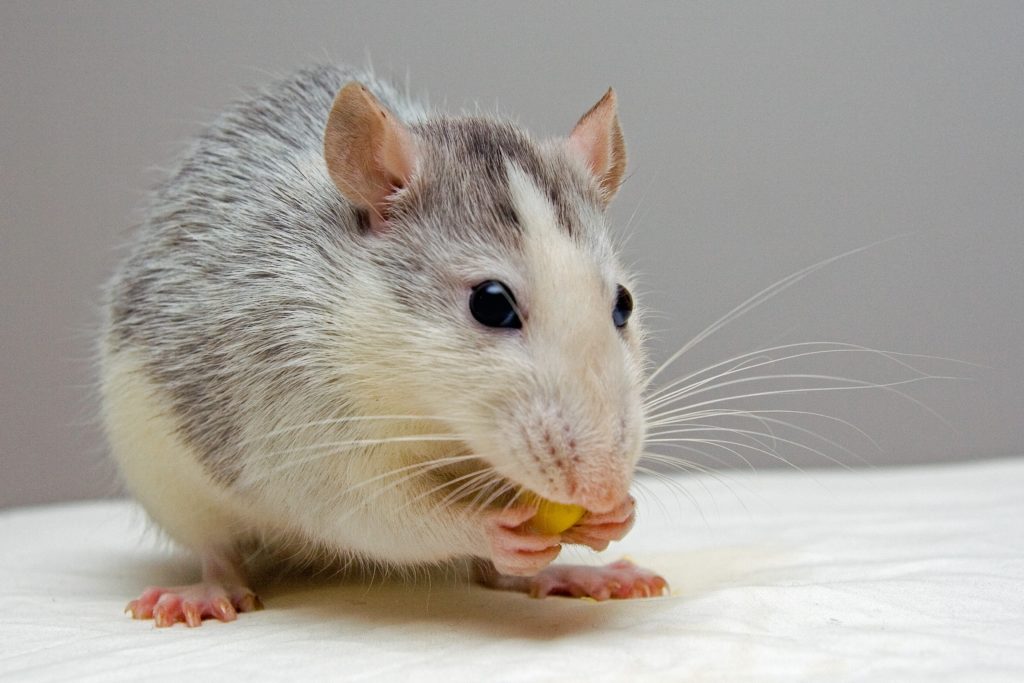
Can Pest Control Prevent a Rodent Infestation?
Although rodents are our furry little friends who play an important role in the ecosystem, it is not healthy or safe to live with them. Living with a rodent infestation is what started the Bubonic plague that wiped out one-third of the world’s population at that time. Rats transmit diseases such as rabies, various animal-to-human fevers, forms of meningitis, Trichinosis, and other viruses. They can also create a foul odor, litter areas with chewed up materials, damage property, and litter food areas with droppings.
Identify and Prevent Infestations
In order to protect yourself from rodent infestations, the EPA recommends first identifying signs of rodent infestation and then taking some simple steps to eliminate or reduce the risks.
Some of the signs are musty odors in the home that smell something like a gerbil tank or a wet dog. You may also find holes chewed in walls, food supplies, boxes, along with shredded fabric or paper nesting materials. The small rice-grain-sized mouse droppings may be found in cupboards, on top of your stove, below the sink, or in other food areas. If you identify any of these elements, it is time to take preventive steps.

In order to prevent an infestation, you’ll need to seal up food sources. Instead of putting your food in cupboards where a rat can chew through the cardboard box or plastic bag with ease, try keeping your food in thicker Tupperware bins inside your cupboards. At the very least, this will eliminate the smells that draw them in, even if they may still be able to chew through the plastic.
You should also separate any garbage from waste papers and take the garbage out every night in a sealed bag. The rats won’t be able to access the sealed garbage can and will not waste their time with your home. In addition, you should remove any deep mulch or leaf piles from the property and stop any bird feedings that may attract rodents.
Cleaning out your garage and removing materials that rodents can nest or hide in is another way of eliminating them from your property. On top of this, you can seal up any holes in your walls that are making it easy for rodents to enter. However, you should be aware that rodents can elongate and flatten their bodies to fit through amazing spaces. It is not difficult for them to scamper right under the bottom of a loosely hung door. If you install exterior doors and windows that are made of metal with an airtight seal, you will reduce the chances of them entering.
The Perfect Example of a Rodent Breeding Ground
If you have ever lived in an apartment complex that was notorious for the number of rodents, you will find that the rodent infestations were commonly due to the lure of garbage disposal methods that let large volumes of trash sit in communal bins for long periods of time. Large piles of garbage make the ideal nesting materials, fresh food supply, and hiding places for rats to multiply, all wrapped up in all the convenience of a single unit. When the rats get energetic, they will travel through the adjacent apartment building from the garbage pile and find their ways into cupboards and walls where they can hide out.
What Additional Steps Can a Pest Control Company Carry Out?
A pest control service is the second line of defense if you have eliminated the venues and food scents that attract pests. Exterminators can use a variety of traps or poisons to kill rodent populations. Of course, this is an uphill battle if you haven’t figured out how to tidy up your home and keep it clean. In some cases, however, it is not your home that is breeding the rodents. They may be hiding in materials in a neighbor’s house and finding their way over to your home because it is in close proximity.
An experienced exterminator will know exactly how to deal with rodent infestations. The use of essential oils, frequency repellents, and other plant barriers usually have minimal effect if you do not first make your home inhospitable to rodents. Closing up any exterior holes where utility lines enter basements and keeping basements and attics dry is the first line of defense.
There are certain types of rodents that like to live up in roofs and others that like to live in walls. Mice and rats do damage because they have to constantly keep chewing and gnawing on materials to keep their teeth sharp. This can cause grave danger when they start chewing on the insulation of electrical wiring inside your home or in your car. The wires can short out and cause a fire or simply cause your vehicle to develop a mysterious no-start condition that is difficult to trace and repair.
You don’t have to be bitten by a mouse or a rat to pick up a disease from it. When rodents infest your food supplies with their saliva or droppings, it is not difficult to transmit deadly diseases. For this reason, you simply cannot look the other way and see rodents as mere pests or domesticated animals roaming around your property. They can do terrible damage to homes from the inside that only becomes apparent when the walls are opened up to reveal their passages and nests.
What Else Can Be Done?
It wouldn’t hurt to buy a mouser to help reduce the rodent populations. A mouser is a cat that is proficient at catching mice. This is one reason why cats have been a favorite domesticated pet for farms and cities alike. They have played a critical role in the food chain and were revered in Egypt. They must have played a critical role in preserving the purity and volume of food stores from corn and grains harvested each season. The cats were mummified when they died and preserved in the same manner as the Pharaohs. Archaeologists have uncovered large mummy burial grounds today made specifically for these animals.
In Egypt, mouser cats played such a critical role that they are represented in one of the seven wonders of the world as the Great Sphinx, guardian of the Pyramids of Giza. It appears that the Sphinx is guarding the pyramids, which signifies the importance of these animals and almost resembles large warehouses or grain silos today. Much like we’re recommending now, the grains of ancient Egypt were probably tightly sealed tight jars and watched over by mousers.
It is amazing to look at the modern problems today and consider how they may have played out in a similar manner during ancient times. But, if you are allergic to cats, you may just have to settle for traps to catch the occasional rodent that enters your home. If you are keeping crumbs off the floor and following all our other recommendations, a trap or two may be enough.
There are a variety of traps available: glue traps, live traps, and spring traps. While the live traps are humane if you release the rats in a timely manner, they may return to their nests after being released and serve no purpose in reducing rodent populations. If you catch and release them far away, this may help.
Glue traps work well because the rats become stuck in place and start to panic. If it doesn’t cause a heart attack or death by starvation, you can simply throw the trap in the garbage; the mouse isn’t getting away once it’s stuck.
Spring traps are another effective option that use sheer force to kill rodents who enter them, but they require bait. Using peanut butter is a more effective bait than cheese, despite what cartoons show.
We’ve covered many different ways to prevent rodents from taking over your home, but one of the smartest things you can do is simply call a pest control professional for a check-up. Check-ups are cheap and they’re great for preventive maintenance to protect against a rodent infestation. Most companies schedule these short maintenance calls quarterly, and it would be wise for homeowners to do the same.
